1. Pale yellow: you're hydrated and doing great!
 image source: reddit.com
image source: reddit.com
A pale yellow color in urine generally indicates a well-hydrated state and reflects good overall health. When your urine appears pale yellow, it suggests that you are adequately hydrated, with a balanced intake of fluids. This color is often considered the ideal shade for urine, as it signifies that your body is efficiently eliminating waste products while maintaining proper hydration levels.
2. Transparent: too much water (yep, that's a thing)
 image source: reddit.com
image source: reddit.com
Transparent or colorless urine can indicate overhydration, typically resulting from excessive water intake. While staying hydrated is crucial for bodily functions, including regulating body temperature and aiding digestion, consuming too much water can lead to electrolyte imbalances and potentially dangerous conditions like water intoxication.
3. Dark yellow: you could do with drinking more fluids
 image source: reddit.com
image source: reddit.com
Dark yellow urine suggests mild dehydration and may indicate the need to increase fluid intake. When urine appears dark yellow, it typically means that you are not consuming enough fluids to maintain optimal hydration levels. Dehydration can occur due to various factors such as excessive sweating, inadequate fluid intake, or certain medical conditions.
4. Amber color: you're seriously dehydrated (go drink something, now!)
 image source: reddit.com
image source: reddit.com
Amber-colored urine indicates severe dehydration and signifies an immediate need for fluids. When urine appears dark amber or brownish, it is a clear indication that your body is significantly dehydrated, with limited fluid reserves. Severe dehydration can result from intense physical activity, prolonged exposure to high temperatures, vomiting, diarrhea, or insufficient fluid intake.
5. Orange: you might have liver or bile issues
 image source: reddit.com
image source: reddit.com
Orange urine can signal possible dehydration, but it may also indicate liver or bile duct issues. While mild dehydration can contribute to urine appearing orange, certain medical conditions can also affect urine color. Liver disorders, such as hepatitis or cirrhosis, can cause bile pigments to accumulate in the bloodstream, leading to orange-colored urine.
6. Pink or red: there's blood in the mix
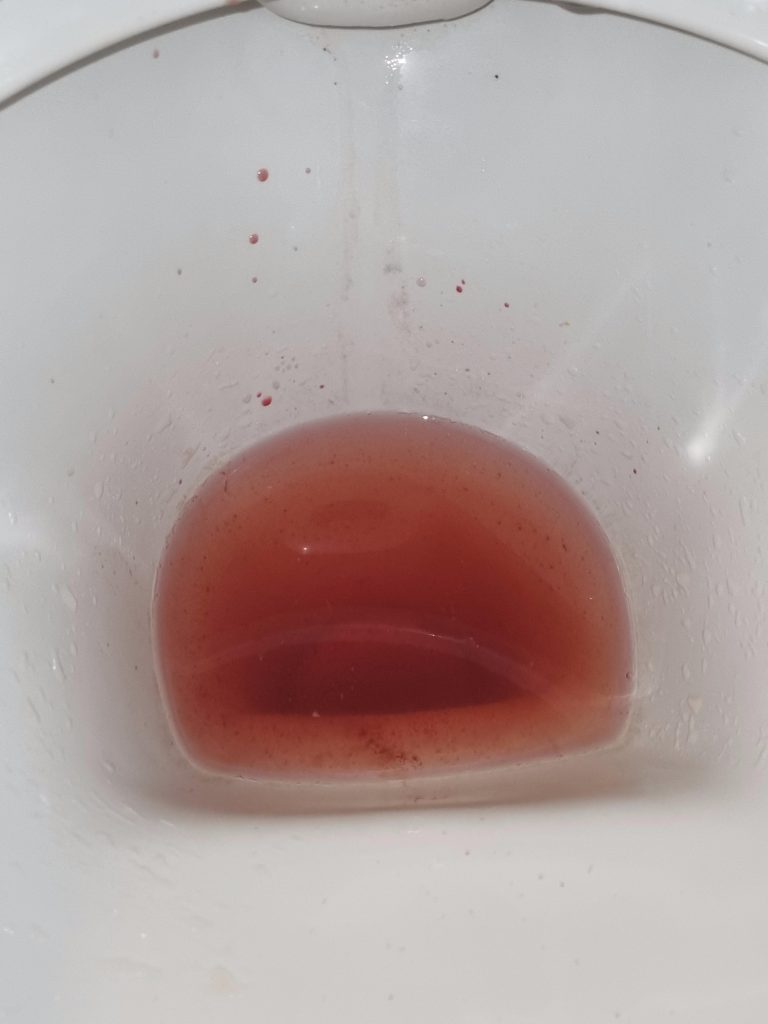 image source: reddit.com
image source: reddit.com
The presence of pink or red urine can be alarming, as it often indicates the presence of blood, which could be indicative of various conditions. Blood in urine, known as hematuria, can result from urinary tract infections, kidney stones, kidney disease, or trauma to the urinary tract. In some cases, vigorous exercise or certain medications may also cause temporary discoloration of urine.
7. Brown: it could be a liver disorder
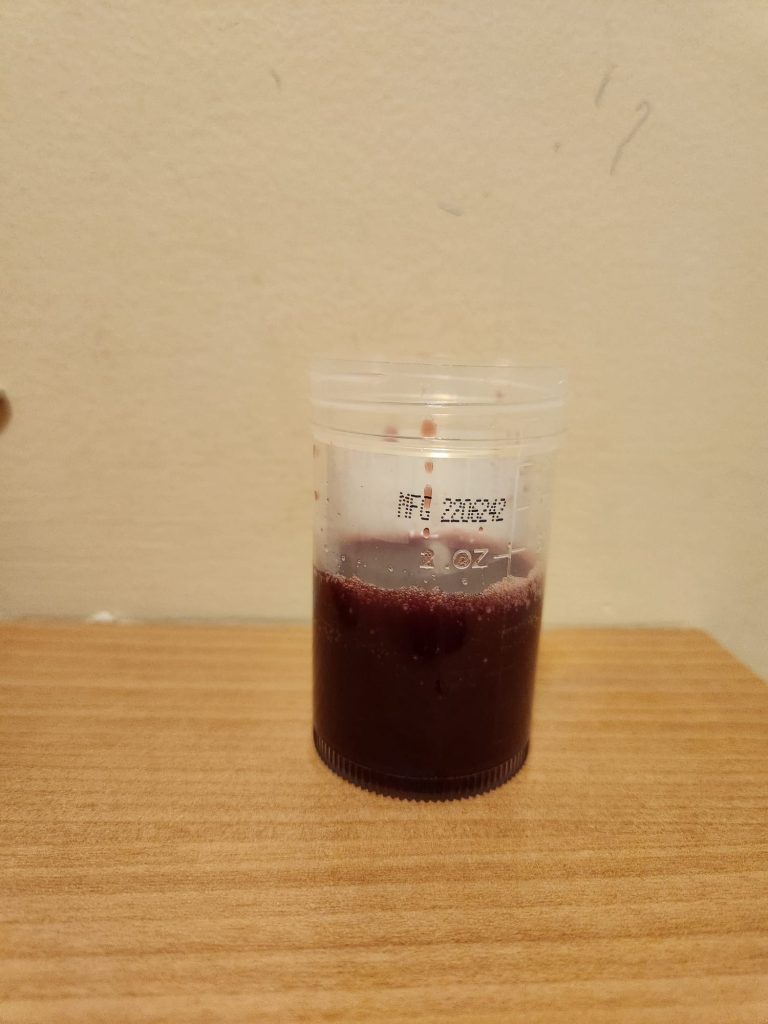 image source: reddit.com
image source: reddit.com
The appearance of brown urine can be concerning and may indicate various underlying health issues. One possible cause of brown urine is liver disorders, such as hepatitis or liver cirrhosis, which can lead to the accumulation of bilirubin in the bloodstream and subsequent excretion in urine. Additionally, severe dehydration can cause urine to become concentrated, resulting in a darker color.
8. Blue or green: have you had food dye lately?
 image source: reddit.com
image source: reddit.com
While uncommon, the presence of blue or green urine can be puzzling and may have several potential causes. One possible explanation is the consumption of certain medications or dietary supplements that contain synthetic dyes or pigments, such as methylene blue or triamterene.
9. Cloudy pee: it might be a urinary tract infection
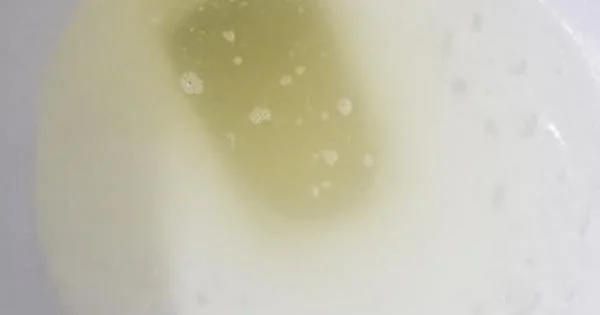
image source: reddit.com
Cloudy urine can be a cause for concern, as it often indicates the presence of particles or substances that should not normally be present in urine. This cloudiness may result from the presence of bacteria, white blood cells, or mucus, suggesting a urinary tract infection. Urinary tract infections occur when bacteria enter the urinary system and multiply, leading to inflammation and other symptoms.
10. Foamy: there's too much protein, which could be a kidney issue
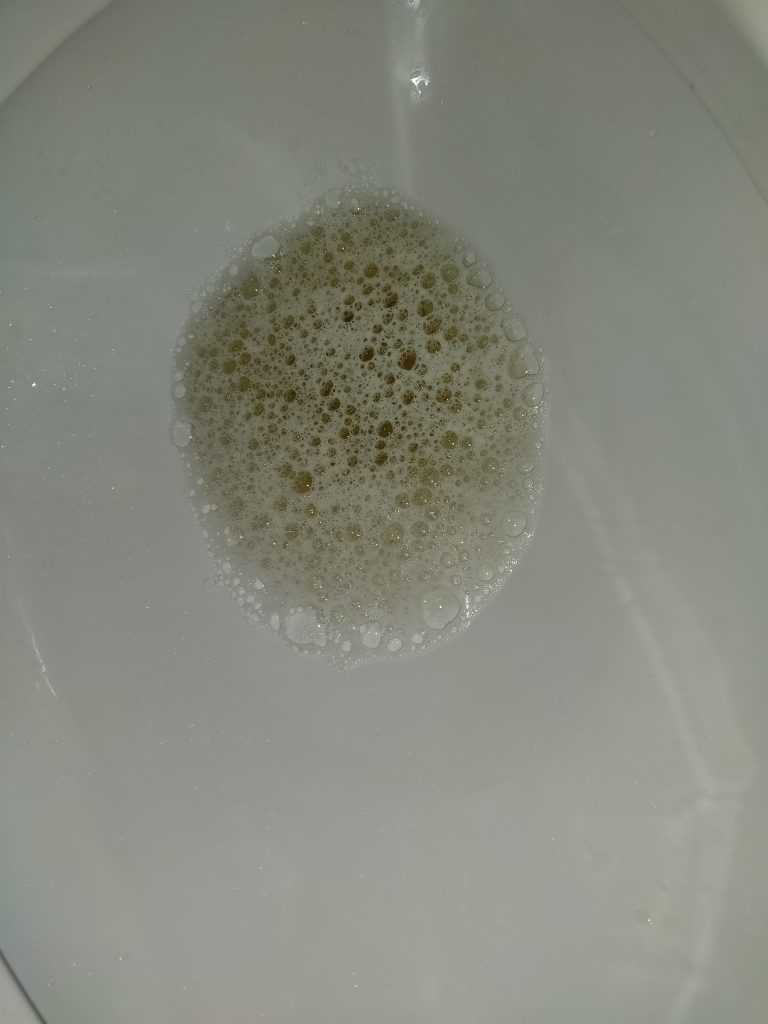 image source: reddit.com
image source: reddit.com
Excessive foaming or frothing in urine, known as foamy urine, can raise concerns about kidney health. Foamy urine may indicate the presence of proteinuria, a condition characterized by the abnormal excretion of proteins in the urine. Normally, only trace amounts of protein are excreted in urine, but when the kidneys are not functioning properly, larger proteins like albumin may leak into the urine, leading to foaming.
11. Your pee smells really strong: depends on what you've eaten
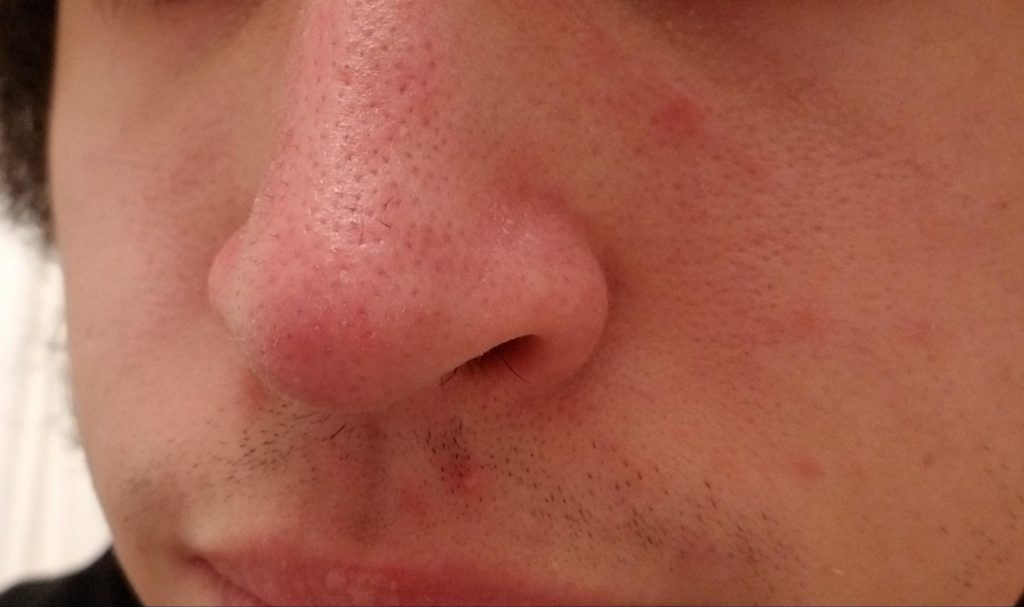 image source: reddit.com
image source: reddit.com
The odor of urine can vary depending on factors such as diet, hydration status, medications, and underlying health conditions. A strong odor in urine may be attributed to certain foods, such as asparagus or coffee, medications like antibiotics or vitamins, or dehydration, which can lead to more concentrated urine.
12. Sweet-smelling: could be a sign of diabetes
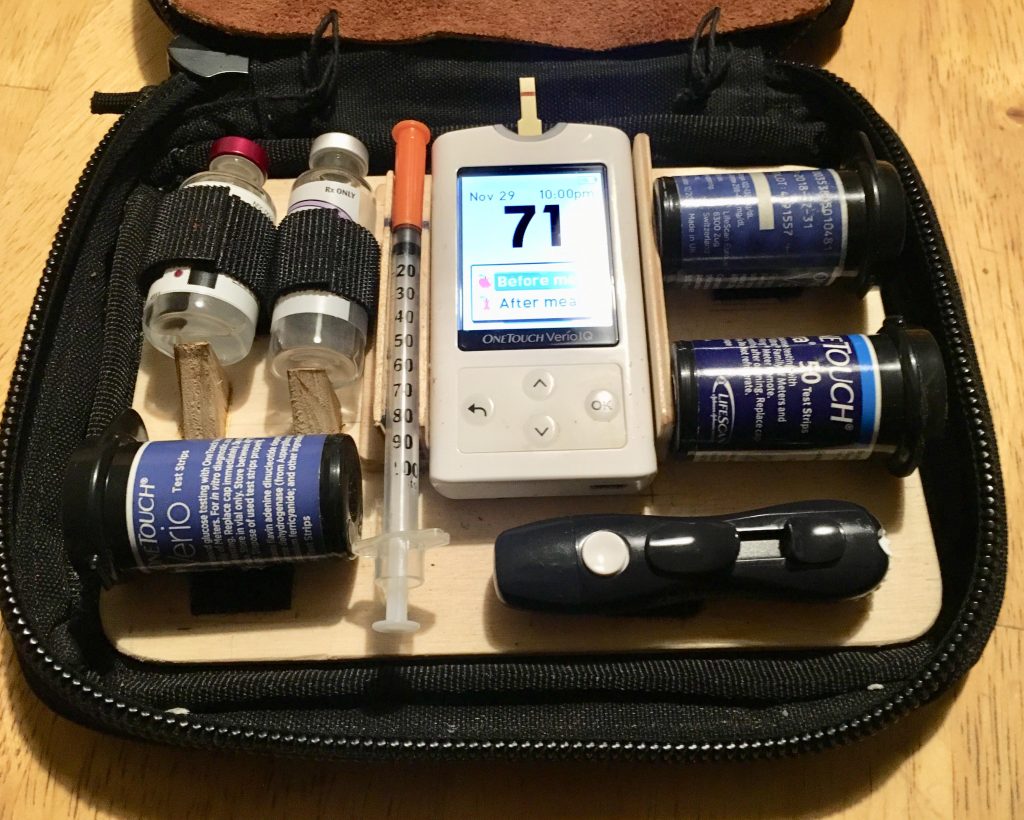 image source: reddit.com
image source: reddit.com
The presence of a sweet odor in urine can be a notable indicator of underlying health issues, particularly when it suggests the presence of excess glucose. In many cases, this can be a sign of diabetes mellitus, a metabolic disorder characterized by elevated blood sugar levels due to either insufficient insulin production or the body's inability to effectively use insulin.
13. It smells musty: it might be liver disease
 image source: nbcnews.com
image source: nbcnews.com
A musty odor emanating from urine can raise concerns about potential liver disease. Liver diseases such as cirrhosis or hepatitis can lead to the accumulation of certain substances in the body, including chemicals called volatile sulfur compounds. These compounds can impart a musty or foul odor to urine when excreted by the kidneys.
14. It smells exactly like maple syrup: there's actually a disorder for that
 image source: reddit.com
image source: reddit.com
A distinctive maple syrup odor in urine is characteristic of a rare metabolic disorder known as maple syrup urine disease (MSUD). MSUD is a genetic disorder that affects the body's ability to metabolize certain amino acids, particularly leucine, isoleucine, and valine. As a result, these amino acids and their byproducts accumulate in the bloodstream and are excreted in urine, giving it a sweet, maple syrup-like smell.
15. It smells terrible: it could be an infection or disorder
 image source: reddit.com
image source: reddit.com
The presence of a foul odor in urine may indicate various underlying health issues, including urinary tract infections (UTIs) or metabolic disorders. UTIs occur when bacteria enter the urinary tract and multiply, leading to inflammation and other symptoms such as frequent urination, burning during urination, or cloudy urine.
16. It doesn't smell of anything: usually a sign of good hydration, but...
 image source: reddit.com
image source: reddit.com
While generally considered a sign of good hydration, odorless urine can occasionally indicate underlying health issues such as diabetes insipidus. Diabetes insipidus is a rare disorder characterized by the inability of the kidneys to conserve water, leading to excessive urination and thirst. Despite the increased volume of urine produced in diabetes insipidus, the urine is typically odorless and clear.
17. It's purple: certain medications might cause this
 image source: reddit.com
image source: reddit.com
Purple-colored urine is extremely rare and typically attributed to certain medications or foods. Medications containing phenolphthalein or certain dyes used in medical imaging procedures may impart a purple hue to urine. Additionally, foods like purple carrots, beets, or blackberries can also cause temporary discoloration of urine.
18. Black: check with your doctor as soon as you can
 image source: reddit.com
image source: reddit.com
The presence of black-colored urine can be alarming and may prompt concerns about potential health issues. While certain medications, such as the antibiotic metronidazole or certain laxatives containing cascara or senna, can cause urine to turn black, it's essential to seek evaluation by a healthcare professional. Black urine may also be indicative of underlying medical conditions such as melanoma or hematuria.
19. White: you might have fat or pus in your pee
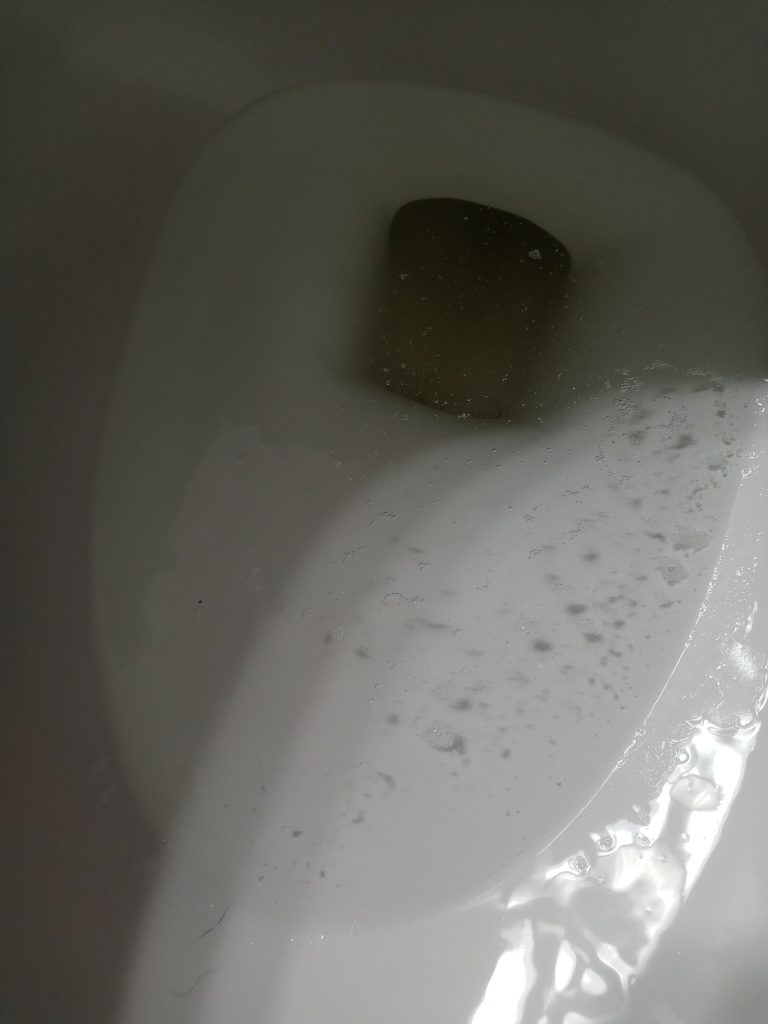 image source: reddit.com
image source: reddit.com
White urine, although rare, can signal the presence of various substances that are not typically found in healthy urine. The appearance of white urine may indicate the presence of pus, indicating an infection in the urinary tract. Additionally, excess fat in the urine, known as lipuria, can cause it to appear milky or white.
20. A brownish-green color could indicate gallbladder issues
 image source: reddit.com
image source: reddit.com
Brownish-green urine may raise concerns about potential liver or gallbladder issues due to the presence of bile pigments. Bile pigments are normally excreted in stool, but in certain conditions, they may be excreted in urine, leading to changes in its color. Liver disorders such as hepatitis or cirrhosis can impair the normal metabolism and excretion of bile pigments.
21. Grey: it could be a metabolic disorder
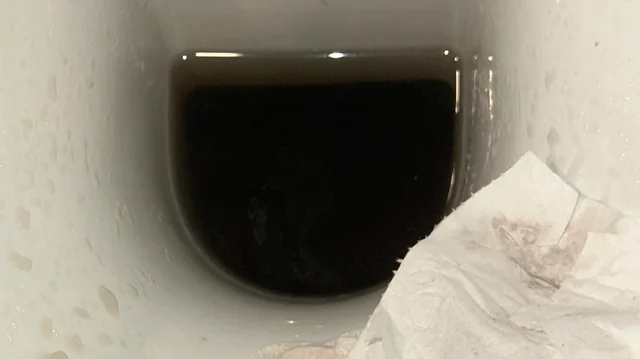 image source: reddit.com
image source: reddit.com
Grey-colored urine can be indicative of a rare metabolic disorder called alkaptonuria. Alkaptonuria is a genetic condition characterized by the body's inability to properly break down certain amino acids, resulting in the accumulation of homogentisic acid. When exposed to air, homogentisic acid oxidizes and darkens, leading to the characteristic grey or black discoloration of urine and other bodily fluids.
22. Neon yellow: have you taken any B-vitamin supplements lately?
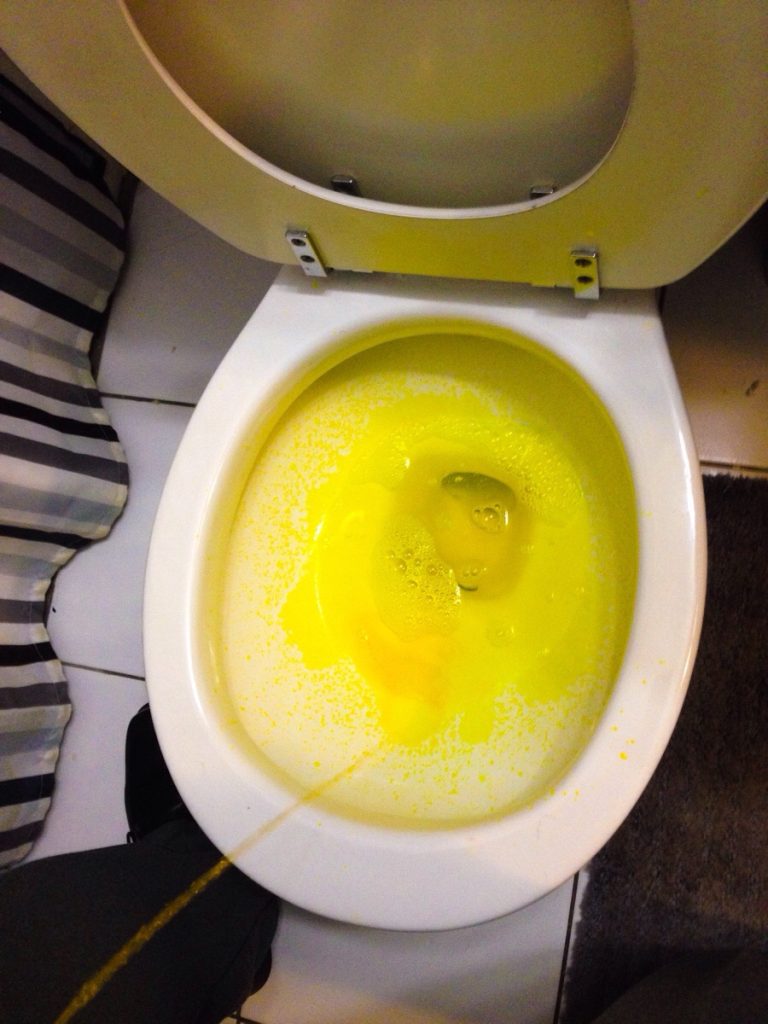 image source: reddit.com
image source: reddit.com
Neon yellow urine can result from various factors, including excess B vitamins or medications containing riboflavin (vitamin B2). B vitamins, particularly riboflavin, are water-soluble vitamins that are not stored in the body and are excreted in urine when consumed in excess. Consequently, high intake of B vitamin supplements or fortified foods can cause urine to take on a bright yellow hue.
23. Pinkish-red: can actually be caused by eating beets

image source: reddit.com
The appearance of pinkish-red urine after consuming beets is a common and harmless phenomenon caused by the natural pigments present in beets. Beeturia, as it is known, occurs when betalain pigments found in beets pass through the digestive system and are excreted in urine. While the color change may be surprising, it is temporary and typically resolves within a day or two.
24. Dark brown pee can be caused by rhubarb
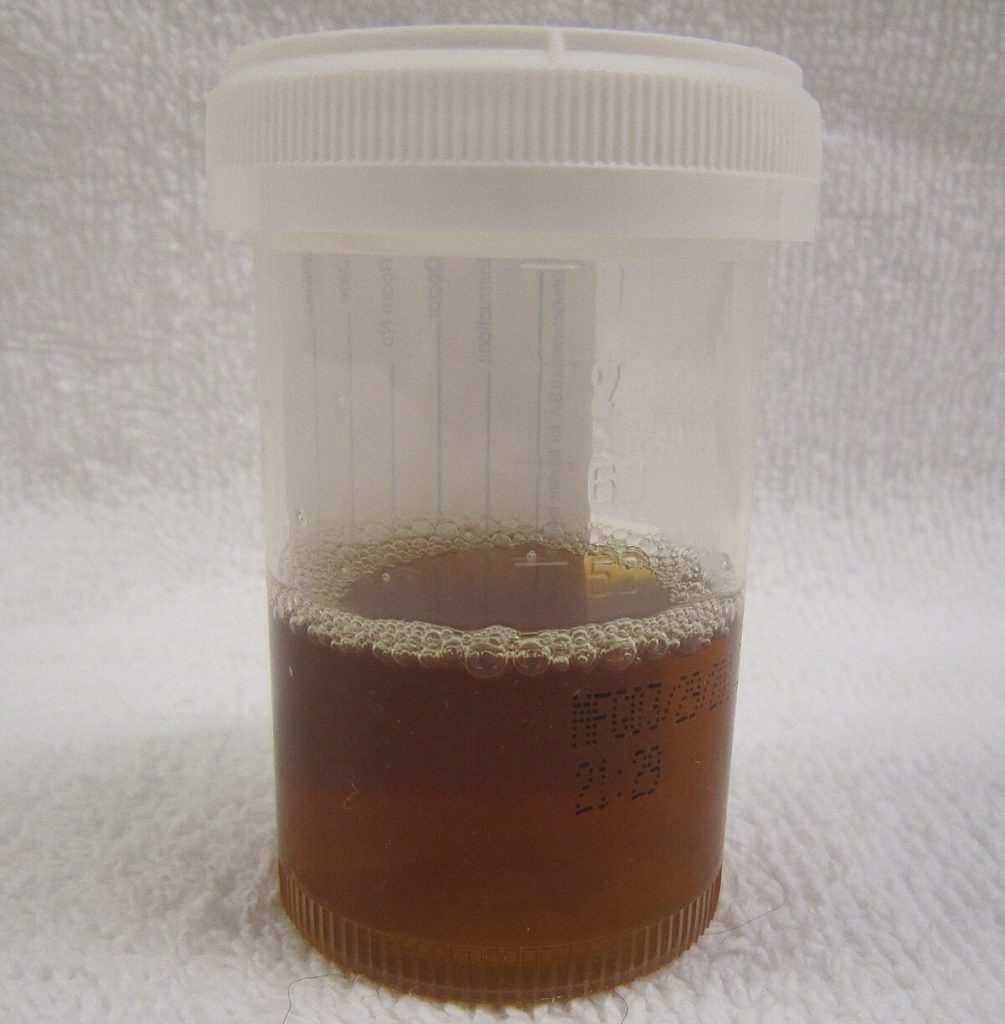 image source: wikipedia.org
image source: wikipedia.org
Observing dark brown urine after consuming rhubarb is a normal and harmless occurrence, attributed to the natural pigments present in rhubarb. Rhubarb contains compounds known as anthraquinones, which impart a deep brown color to urine when metabolized and excreted by the body.
25. A black-purple hue can be caused by berries

image source: reddit.com
Witnessing purple-colored urine after consuming blackberries is a normal and harmless occurrence, attributable to the natural pigments present in blackberries. Blackberries contain compounds such as anthocyanins, which are responsible for their deep purple color and can impart a similar hue to urine when metabolized and excreted by the body.
26. Black only after eating fava beans: a rare condition
 image source: reddit.com
image source: reddit.com
Encountering black-colored urine after consuming fava beans can be a rare but potentially serious occurrence, particularly for individuals with a deficiency of the enzyme glucose-6-phosphate dehydrogenase (G6PD). Fava beans contain compounds known as vicine and convicine, which can trigger a severe reaction in individuals with G6PD deficiency.
27. Yellow-orange pee can be caused by vitamin C
 image source: reddit.com
image source: reddit.com
Observing a yellow-orange hue in urine can often be attributed to the consumption of certain medications or foods rich in compounds such as vitamin C, carotene, or beta-carotene. Vitamin C, found in citrus fruits and supplements, can contribute to the yellow-orange color of urine when taken in excess.
28. Green and strong smelling: you can thank asparagus for that!
 image source: reddit.com
image source: reddit.com
Witnessing green-colored urine after consuming asparagus is a normal and harmless occurrence, attributed to sulfur-containing compounds present in asparagus. Asparagus contains compounds such as methanethiol and various sulfur-containing amino acids, which are metabolized and broken down into volatile sulfur compounds in the digestive system.
29. Yellow-green could be caused by medications or food dyes
 image source: reddit.com
image source: reddit.com
Observing a yellow-green hue in urine can be attributed to various factors, including medications or certain food dyes. Some medications, particularly those containing dyes or pigments, can influence urine color, causing it to take on a yellow-green tint. Additionally, consumption of foods or drinks containing synthetic dyes, such as certain candies or beverages, can contribute to changes in urine color.
30. Muddy red-brown: myoglobin could be present
 image source: reddit.com
image source: reddit.com
The presence of a reddish-brown hue in urine may indicate the presence of myoglobin, a protein found in muscle tissue, typically seen in conditions such as rhabdomyolysis. Rhabdomyolysis occurs when muscle fibers break down rapidly, releasing myoglobin into the bloodstream, which is then filtered by the kidneys and excreted in urine. The breakdown of myoglobin can impart a reddish-brown color to urine.
31. Yellow with a mix of blue: check your food or drink for dyes
 image source: reddit.com
image source: reddit.com
Witnessing a greenish tint in urine after consuming foods or drinks containing blue dye is a normal and harmless occurrence, attributed to the interaction between the dye and other compounds in the body. Blue dyes commonly used in food and beverages, such as those found in certain candies or sports drinks, can combine with other substances in the digestive system, resulting in a color change in pee.
32. Grayish hues might be caused by fish
 image source: reddit.com
image source: reddit.com
Observing a grayish hue in urine after consuming specific types of fish is a normal and harmless occurrence that may surprise some individuals. Foods known for their distinctive taste and aroma and containing sulfur-containing compounds will, when metabolized by the body, impart a unique scent to urine and occasionally lead to changes in its color, including a grayish tint.
33. Cloudy with an ammonia smell: it could be a bladder infection
 image source: reddit.com
image source: reddit.com
Observing cloudy urine accompanied by an ammonia-like smell can raise concerns about potential urinary tract infections (UTIs) or bladder infections. Cloudy urine may indicate the presence of various substances such as bacteria, white blood cells, mucus, or pus, which can result from an infection in the urinary tract.
34. Spots of red with clear pee around them: signs of kidney stones
 image source: reddit.com
image source: reddit.com
Observing pinkish-red urine with clear surroundings can be indicative of concentrated urine with a localized source of blood, such as kidney stones. Kidney stones are hard deposits that form in the kidneys and can cause severe pain and discomfort when they pass through the urinary tract. When a kidney stone irritates the lining of the urinary tract, it may cause minor bleeding, resulting in the presence of blood in urine.
35. If you experience any of these when you pee, see a doctor immediately: severe pain or burning sensation
 image source: reddit.com
image source: reddit.com
Experiencing intense pain or a burning sensation during urination can significantly impact one's quality of life and may indicate underlying urinary tract issues that require medical attention. This discomfort can be associated with conditions such as urinary tract infections (UTIs) or bladder inflammation (cystitis).
36. Any presence of blood
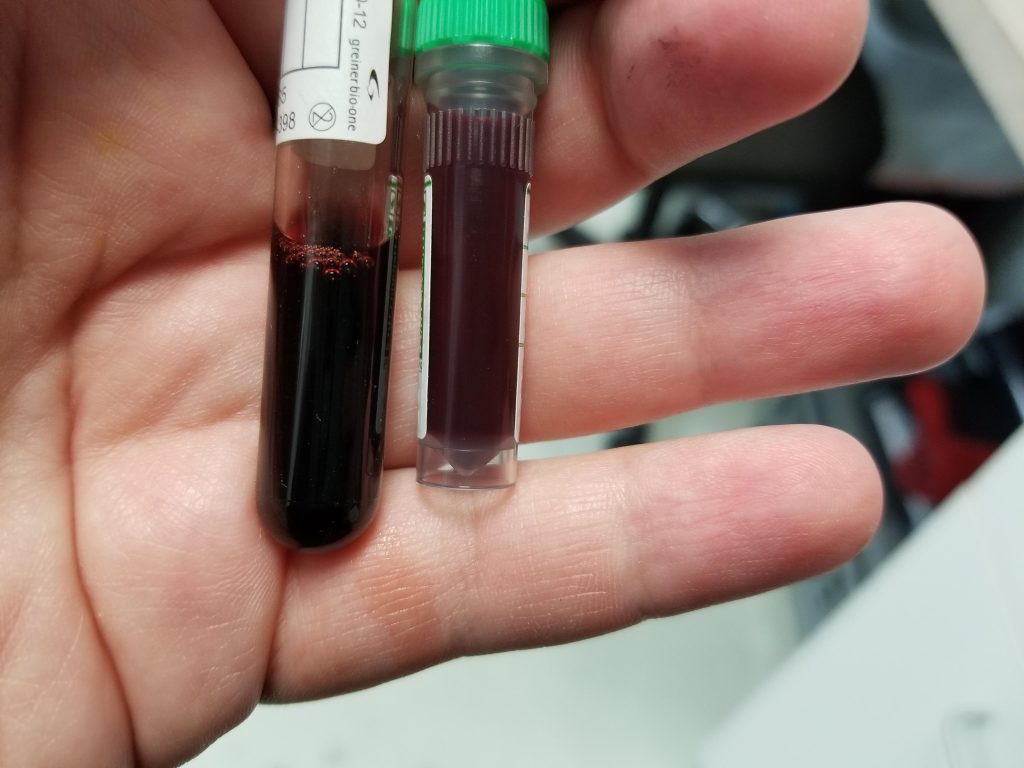 image source: reddit.com
image source: reddit.com
Discovering blood in urine, a condition known as hematuria, can be alarming and should prompt immediate medical attention. Hematuria can be classified as either gross (visible to the naked eye) or microscopic (only detectable under a microscope). Various serious conditions can cause hematuria, including urinary tract infections (UTIs), kidney stones, bladder cancer, or kidney disease.
37. You never stop needing to pee
 image source: reddit.com
image source: reddit.com
Experiencing frequent urination, especially when accompanied by a sense of urgency, can be disruptive and may indicate underlying health conditions that require attention. Frequent urination can be a symptom of various conditions such as urinary tract infections (UTIs), diabetes, or an overactive bladder. UTIs can irritate the bladder and increase the frequency of urination.
38. You struggle to pee at all
 image source: reddit.com
image source: reddit.com
Struggling or being unable to urinate, known as urinary retention, can be distressing and may indicate underlying urinary tract obstructions or issues that require medical attention. Difficulty urinating can occur due to various factors such as urinary retention, prostate problems (in men), urethral strictures, or other urinary tract obstructions.
39. Any sort of foul smell coming from cloudy urine
 image source: reddit.com
image source: reddit.com
Noticing cloudy urine with a strong odor can be concerning and may indicate underlying health issues that require attention. Cloudy urine with a foul odor may suggest urinary tract infections (UTIs) or other underlying health issues such as kidney stones or bladder disorders. UTIs can lead to inflammation and irritation of the urinary tract, causing changes in urine color and odor.
40. You suddenly lose bladder control
 image source: reddit.com
image source: reddit.com
Experiencing sudden and unexplained urinary incontinence, or loss of bladder control, can be distressing and may indicate underlying medical conditions that require evaluation by a healthcare professional. Sudden urinary incontinence can be caused by various factors such as urinary tract infections (UTIs), nerve damage, or other medical conditions.
41. You leak pee when you laugh, cough or during certain activities
 image source: reddit.com
image source: reddit.com
Urine leakage during activities, known as stress incontinence, can significantly impact daily life and may be indicative of various underlying issues. Weakness or damage to the pelvic floor muscles, which support the bladder and urethra, is a common cause of stress incontinence. These muscles may become weakened due to factors such as childbirth, aging, obesity, or pelvic surgery.
42. You have pain in the lower abdomen
 image source: reddit.com
image source: reddit.com
Persistent pain or discomfort in the lower abdomen or pelvic region can have various causes, including urinary tract infections (UTIs), kidney stones, or other urological conditions. UTIs occur when bacteria enter the urinary tract and multiply, leading to inflammation and irritation of the bladder. This can result in symptoms such as pelvic pain.
43. You never feel like you've completely emptied your bladder, even when you go
 image source: reddit.com
image source: reddit.com
The sensation of incomplete emptying of the bladder after urination, known as urinary retention, can be distressing and may indicate various underlying issues. In men, prostate enlargement (benign prostatic hyperplasia) is a common cause of urinary retention. As the prostate gland enlarges, it can obstruct the flow of urine from the bladder, leading to difficulty emptying the bladder completely.
44. Any significant changes in your peeing habits
 image source: reddit.com
image source: reddit.com
Any significant changes in urinary habits, such as increased frequency, urgency, or difficulty urinating, should not be ignored and warrant prompt evaluation by a doctor. These changes can indicate various underlying medical conditions, including urinary tract infections (UTIs), bladder dysfunction, kidney stones, or prostate problems (in men).
45. You have back pain accompanied by a fever
 image source: reddit.com
image source: reddit.com
Pelvic or back pain accompanied by fever can be a sign of a severe kidney infection called pyelonephritis, which requires immediate medical attention and antibiotic treatment. Pyelonephritis occurs when bacteria from a urinary tract infection (UTI) travel up the ureters and infect the kidneys.
46. You have any sexual pain alongside pee problems
 image source: reddit.com
image source: reddit.com
Experiencing pain during erections or ejaculation can be distressing and may indicate underlying medical conditions that require evaluation by a healthcare professional. Painful erections, known as dyspareunia, can have various causes, including urinary tract infections (UTIs), prostatitis, or sexually transmitted infections (STIs).
47. You're always getting UTIs
 image source: reddit.com
image source: reddit.com
Recurrent or persistent urinary tract infections (UTIs) despite treatment can significantly impact quality of life and may indicate underlying urinary tract abnormalities or other contributing factors that require investigation by a healthcare professional. While UTIs are common and usually respond well to antibiotic treatment, frequent or recurrent infections may suggest an underlying issue.
48. Your pee has suddenly changed from its normal color
 image source: reddit.com
image source: reddit.com
Any sudden and significant changes in urine color or odor should not be ignored and warrant prompt evaluation by a healthcare professional. Changes in urine color, such as dark brown, orange, or pink/red, may indicate underlying health issues that require further investigation. Dark brown urine, for example, can be a sign of liver problems such as hepatitis or bile duct obstruction.
49. Bedwetting in either children or the elderly
 image source: reddit.com
image source: reddit.com
Urinary symptoms in children, such as bedwetting or daytime wetting, or in the elderly, such as new-onset urinary incontinence, should not be dismissed and require prompt evaluation by a healthcare professional. In children, urinary symptoms may indicate urinary tract infections (UTIs), bladder dysfunction, or anatomical abnormalities that need assessment.
50. You're feeling dizzy as well as any toilet troubles
 image source: reddit.com
image source: reddit.com
Experiencing nausea, vomiting, or feeling lightheaded or dizzy along with urinary symptoms may suggest a severe urinary tract infection, kidney stones, or other urinary tract issues that have progressed to a more serious stage. Seeking immediate medical attention is crucial to prevent dehydration, kidney damage, or other complications associated with these conditions.
 image source: reddit.com
image source: reddit.com image source: reddit.com
image source: reddit.com image source: reddit.com
image source: reddit.com image source: reddit.com
image source: reddit.com image source: reddit.com
image source: reddit.com image source: reddit.com
image source: reddit.com image source: reddit.com
image source: reddit.com image source: reddit.com
image source: reddit.com
 image source: reddit.com
image source: reddit.com image source: reddit.com
image source: reddit.com image source: reddit.com
image source: reddit.com image source: nbcnews.com
image source: nbcnews.com image source: reddit.com
image source: reddit.com image source: reddit.com
image source: reddit.com image source: reddit.com
image source: reddit.com image source: reddit.com
image source: reddit.com image source: reddit.com
image source: reddit.com image source: reddit.com
image source: reddit.com image source: reddit.com
image source: reddit.com image source: reddit.com
image source: reddit.com image source: reddit.com
image source: reddit.com
 image source: wikipedia.org
image source: wikipedia.org
 image source: reddit.com
image source: reddit.com image source: reddit.com
image source: reddit.com image source: reddit.com
image source: reddit.com image source: reddit.com
image source: reddit.com image source: reddit.com
image source: reddit.com image source: reddit.com
image source: reddit.com image source: reddit.com
image source: reddit.com image source: reddit.com
image source: reddit.com image source: reddit.com
image source: reddit.com image source: reddit.com
image source: reddit.com image source: reddit.com
image source: reddit.com image source: reddit.com
image source: reddit.com image source: reddit.com
image source: reddit.com image source: reddit.com
image source: reddit.com image source: reddit.com
image source: reddit.com image source: reddit.com
image source: reddit.com image source: reddit.com
image source: reddit.com image source: reddit.com
image source: reddit.com image source: reddit.com
image source: reddit.com image source: reddit.com
image source: reddit.com image source: reddit.com
image source: reddit.com image source: reddit.com
image source: reddit.com image source: reddit.com
image source: reddit.com image source: reddit.com
image source: reddit.com image source: reddit.com
image source: reddit.com